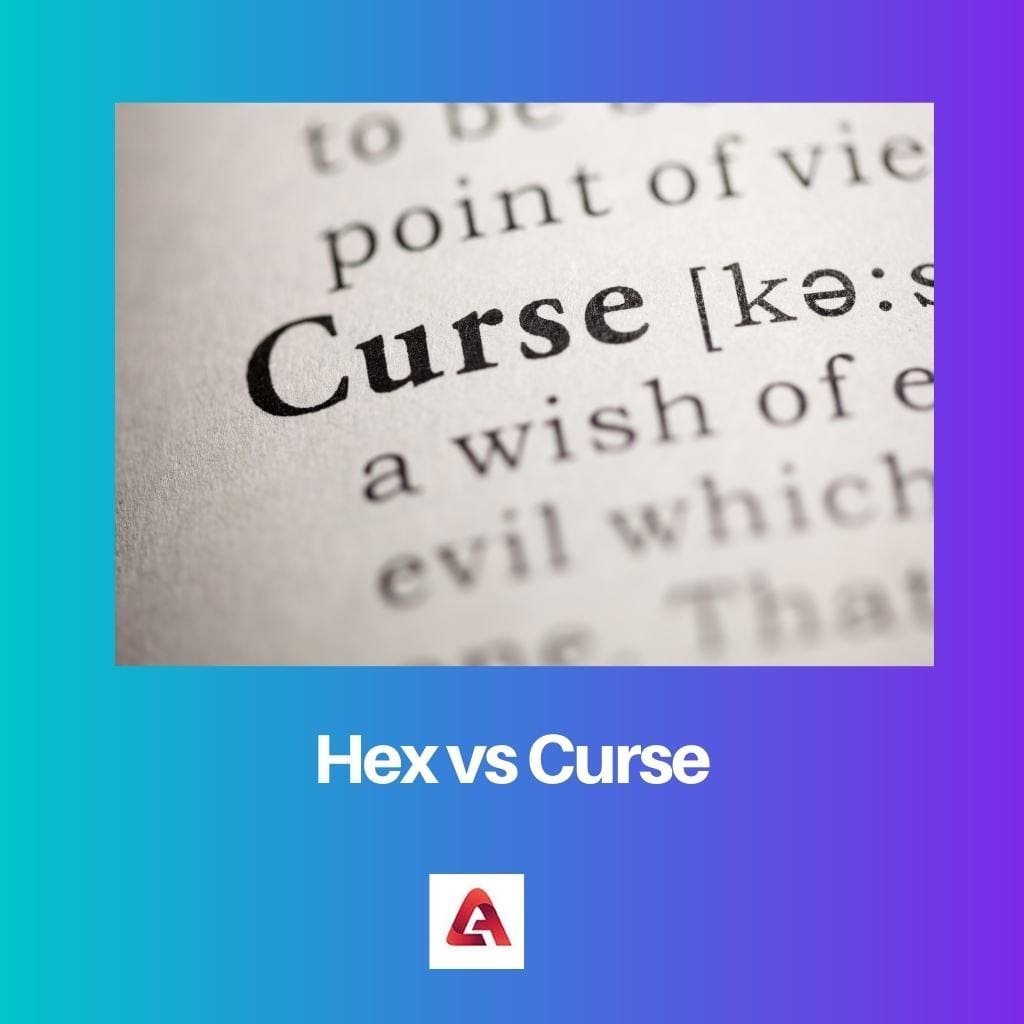Witchcraft and black magic might be fascinating to many of us, and if it thrills you too, then you might have spent hours binging movies based on it. What if I tell you that witchcraft, enchantment, and black magic are not limited to movies but are practiced in different parts of the world?
Yes, these are real things but not all of us believe in these kinds of things.
At some point, someone might have cheated or hurt you, and you would have just ignored it, or you would have had a small fight with him/her, but some people go to the extent of cursing or enchanting a spell on that person.
A hex and a curse might seem similar to us since both are magical spells chanted on someone, but they also have noteworthy differences. Both hexing and cursing are meant to cause damage and loss to the one on whom they are chanted.
Key Takeaways
- Hex is a spell or charm cast to cause harm or bad luck to someone, whereas a curse is a solemn invocation for harm or injury to occur to someone.
- Hex is cast using physical objects or materials, such as candles or dolls, whereas curses can be cast without physical objects.
- Hexes are temporary and can be removed, whereas curses are more difficult to remove and long-lasting.
Hex vs. Curse
A hex is a form of negative magic or curse that is intended to bring misfortune or harm to a person or group. In some cultures, a hex may also be called a jinx or a spell. A curse is a declaration or wish for harm or punishment to befall someone or something, invoked by supernatural or divine powers. A curse does not necessarily involve a specific ritual or action.

Comparison Table
| Parameters of Comparison | Hex | Curse |
|---|---|---|
| Meaning | A hex is casting an evil spell on someone or something with the help of some supernatural power. | A curse is a powerful spell cast on someone or something to seriously cause extreme damage and pain to them, sometimes even death. |
| Derivation of the word | Hexing is derived from the German word ‘Hexen,’ which means witchcraft. | The word curse is derived from the old English word ‘curs,’ meaning a prayer to want someone or something to be harmed or hurt. |
| Effect | A hex has short-termed effects and doesn’t affect someone very adversely. | A curse has a long-term effect and can harm the person and his upcoming generations. |
| Practiced by | A hex is practiced by people involved in witchcraft. | A curse can be done by any person who means harm to someone or something. Curses are even practiced in churches. |
| Harshness | A hex is milder than a curse but is meant to harm someone or something. | A curse is more brutal than a hex and can be extremely terrible. |
What is Hex?
A hex is a kind of witchcraft performed by the so-called witches or warlocks to cause harm to anyone. The word hexing is derived from the German word ‘Hexen,’ meaning witchcraft.
Only persons involved in witchcraft can cast a hex on anyone. Hexing involves supernatural forces for more effective results.
Hexing is a less harmful type of spell and does not cause fatal damage to someone. It is a short-termed spell.
A hex can cause physical changes, as many of you would have observed in Harry Potter, like the growth of the front tooth or growing of the toenail or the ticking hex or the bat bogey hex. Hexes cause mental torture or physical damage or bring bad luck, like you may lose the job you may, fail an exam, or you may have an accident.

What is Curse?
How many times have you hated someone so badly that you wished him bad fortunes and wished for bad things to happen to him? Some people with this feeling for someone go to the extent of cursing the people they hate.
Well, it might seem like it can just happen in movies, but it does happen in real life and in many parts of the world.
Cursing also involves black magic and witchcraft though it is practiced in churches. You might have watched many haunted and thrilling movies involving witchcraft in which the curse is carried on to generations.
Yes, curses have a long-lasting impact and do not go off easily. They may pass on from generation to generation.
Curses are too brutal, and unforgivable, and can even take the cursed person’s life. Some examples of curses are crucial, petrified, sectumsempra, etc.
Swearing is also considered a light form of a curse.

Main Differences Between Hex and Curse
- Hexes are short-termed and less harmful than curses, while curses can be dangerous and long-lasting.
- Hexing is practiced by people involved in witchcraft, and it involves supernatural entities while anyone can spell curses.
- Hexing always has an evil intention, as do curses, but curses can be used for a good purpose because cursing is also practiced in churches.
- A person who has been cursed may not be aware of it, maybe for too long, while a person on whom a hex is spelled is aware of it.
- Curses are unpardonable and can be fatal to the cursed person, while hexes are not that severe.
